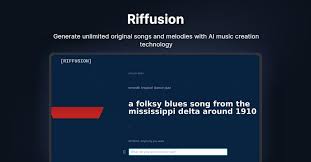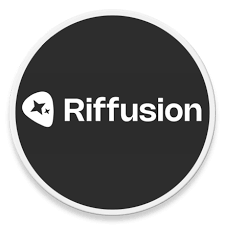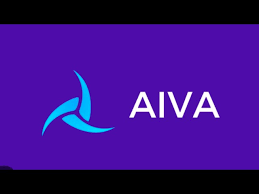AI-generated music is becoming a serious tool for artists, marketers, and developers. But as tools like Riffusion gain popularity, one question keeps coming up: Can I use Riffusion for commercial use? Whether you’re looking to release an AI-generated album, monetize content on YouTube, or build your own music app, knowing the legal and ethical use cases is essential.
In this guide, we’ll explore exactly how Riffusion works when it comes to commercial use, what rights you do (and don’t) have, and how to safely build projects or products around it. We’ll also look at licensing specifics, open-source use cases, and best practices to avoid any legal pitfalls.

What Is Riffusion and Why It Matters in Commercial Use
Riffusion is an AI-powered music generation tool that converts text prompts into spectrograms, then reconstructs those spectrograms into short audio clips using deep learning. It was developed by Seth Forsgren and Hayk Martiros, and it gained viral popularity in late 2022.
Riffusion runs on top of Stable Diffusion, but unlike text-to-image tools, it creates musical textures from language-based input. This makes it appealing for content creators, developers, and even indie musicians who want fast, royalty-free music loops.
But when it comes to commercial use, what exactly is allowed?
Understanding the Different Versions of Riffusion
Before diving into usage rights, it’s important to understand that Riffusion exists in two main forms:
The Riffusion Web Demo at app.riffusion.com
The Open-Source Codebase available on GitHub
Each version has a different licensing model, and that directly affects whether or not you can use the generated music commercially.
Commercial Use and the Riffusion Web Demo
If you’ve only used the browser-based version of Riffusion, here's the catch: there is no explicit license or commercial use guarantee provided for the outputs from the web demo.
Why?
The site doesn’t specify any usage rights for the music it generates.
It’s likely meant for experimentation, entertainment, and educational purposes.
No official terms or commercial rights documentation is publicly linked from the web app.
Can you safely sell music generated from the demo?
No, not without risk. Since Riffusion’s creators haven’t explicitly given users the right to monetize or distribute content made with the web demo, you could be violating intellectual property rights by using that output commercially.
So, if you’re creating music for commercial use—whether for profit, brand campaigns, games, or videos—you’ll want to consider the open-source version instead.
Commercial Use and Riffusion’s Open-Source Code
Here’s the good news: the open-source version of Riffusion is licensed under the MIT License, which does allow for commercial use.
What is the MIT License?
The MIT License is one of the most permissive open-source licenses available. It allows you to:
Use the software for any purpose
Modify the code to suit your needs
Distribute the code or binaries
Commercialize your product or service, as long as you include the original license
This means you can:
Build a music-generation app with Riffusion as the engine
Sell audio loops or samples generated using a modified version of the code
Integrate it into your product stack—whether that’s for a SaaS platform, game, or creative tool
What You Need to Do:
Download the GitHub code from https://github.com/riffusion/riffusion
Read the MIT License file included in the repository
Acknowledge the license in your project documentation or about page
That’s it. No royalties. No hidden fees. Full commercial freedom.
Real-World Commercial Use Cases
Here are some practical examples of how developers and creatives have used Riffusion commercially:
AI music generation plugins for DAWs like Ableton or FL Studio
Stock music platforms offering short AI-generated loops
Experimental video games with adaptive Riffusion-powered soundtracks
Interactive installations that change music in real-time using user input
According to GitHub, the repository has over 7,000 forks as of 2025, and several commercial apps reference Riffusion’s open-source build as their foundation.
Risks and Limitations to Be Aware Of
Even with open-source flexibility, there are a few things to keep in mind:
1. Audio Quality and Professional Use
Riffusion’s generated audio is relatively low fidelity, usually mono and limited to short loops. For professional-grade projects, you might need to clean or remix the audio using tools like Adobe Audition or iZotope RX.
2. Output Licensing Ambiguity from the Web Demo
Unless you’re using your own local build or modified code, the audio generated via the public demo site remains legally ambiguous for commercial use.
3. Model Limitations and Training Data
Riffusion is trained on spectrograms, not musical scores. It may unintentionally replicate patterns seen in its training data, which could raise questions about originality in edge cases. Always double-check your outputs.
FAQ: Can I Use Riffusion for Commercial Use?
Can I sell music generated with Riffusion?
Yes, but only if you use the open-source version under the MIT License. The web demo does not provide clear commercial rights.
Do I need to credit the creators of Riffusion?
If you're using the open-source code, yes—you should include the original MIT license in your distribution. For the demo version, there's no crediting requirement, but also no commercial clarity.
Can I make a mobile app using Riffusion’s engine?
Yes. As long as your implementation uses the open-source code under the MIT License, you can use it commercially in an app or software product.
Is the music I generate copyright-free?
Technically yes, for locally-generated outputs. But always perform a content scan if you’re using outputs commercially, especially in published albums or ads.

Conclusion: You Can Use Riffusion Commercially—But Be Smart About It
So, can you use Riffusion for commercial use?
Yes, you can—but only if you’re using the open-source version hosted on GitHub. That version is MIT-licensed, which means it gives you full rights to use, modify, and sell projects based on it. However, the web demo does not include licensing for commercial use, so you should avoid using it to produce content for business or revenue purposes.
To use Riffusion commercially with confidence:
Stick to the open-source version
Review the MIT License and include attribution
Always test outputs for originality and quality
Avoid using the web demo for any monetized content
By doing so, you can tap into the power of AI-generated music while staying fully compliant—and creative.
Learn more about AI MUSIC

